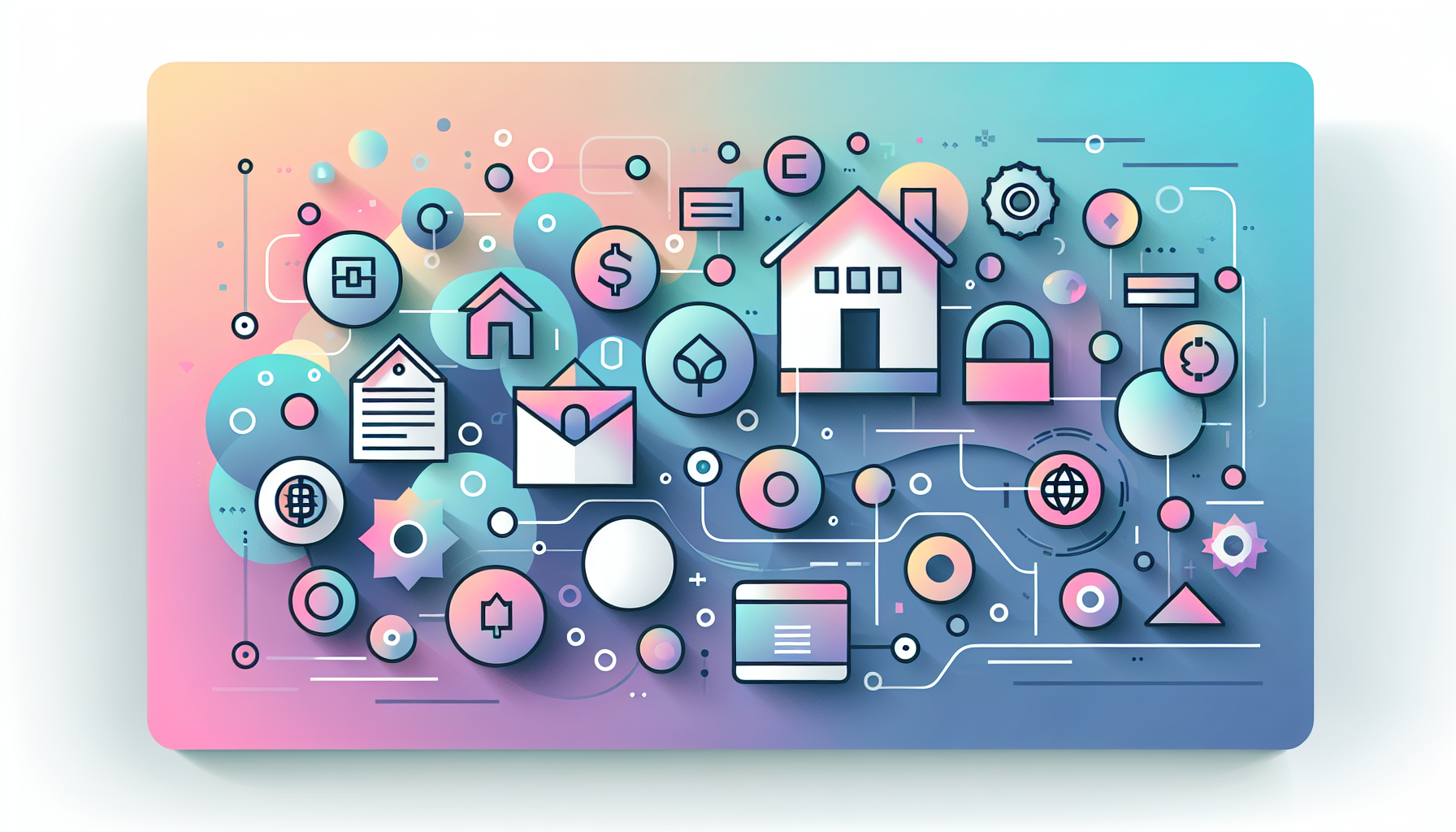Blockchain in Mortgage Transactions: 2025 Outlook

The real estate and mortgage industries are on the cusp of a significant transformation, driven by the integration of blockchain technology. This innovative approach promises to enhance the security, efficiency, and transparency of property transactions, including mortgage processes. As we look ahead to 2025, it's essential to explore how blockchain will revolutionize mortgage transactions and what this means for the future of home buying and property ownership.
Blockchain Technology: A Game-Changer for Real Estate
Blockchain technology is renowned for its decentralized and tamper-proof ledger system, which ensures that all transactions are secure and transparent. In the context of real estate, blockchain can streamline property transactions by utilizing smart contracts. These self-executing agreements automate tasks such as ownership transfers and payment confirmations, reducing the need for intermediaries like brokers and notaries. This not only lowers transaction costs but also accelerates the closing process, making it faster and more efficient.
Enhanced Transparency and Security
One of the most significant advantages of blockchain in real estate is its ability to provide a transparent and secure transaction history. By recording all transactions on a decentralized ledger, blockchain technology minimizes the risk of fraud and ownership disputes. Buyers can access verified property histories, and governments can adopt blockchain-based registries to enhance efficiency and trust in the system. For instance, countries like Sweden and the UAE are already piloting blockchain-based land registries to improve transparency and reduce bureaucracy.
For those interested in exploring blockchain's potential in real estate, platforms like Fortune Hub offer insightful articles on the topic.
Global Accessibility Through Tokenization
Another groundbreaking aspect of blockchain in real estate is tokenization. By dividing properties into digital tokens, tokenization allows for fractional ownership, making high-value properties more accessible to smaller investors. This not only improves liquidity but also opens up new opportunities for cross-border investments. Tokenization simplifies the process of selling or transferring property shares, attracting international investors and expanding market opportunities.
Real estate tokenization has already reached significant value, with experts projecting it to hit $1.5 trillion by 2025. Major financial institutions like BlackRock and JP Morgan are embracing this technology, highlighting its potential for growth and innovation in the sector.
Blockchain in Mortgage Transactions: The Future
When it comes to mortgage transactions, blockchain can play a pivotal role in enhancing security and efficiency. By leveraging blockchain technology, mortgage processes can become more streamlined, reducing the complexity and time associated with traditional methods. Here are some ways blockchain is poised to impact mortgage transactions:
Secure Property Transfers
Blockchain ensures that property transfers are secure and transparent. Smart contracts can automate the transfer process, ensuring that all parties involved are notified and that the transaction is completed efficiently. This reduces the risk of errors and fraud, providing a safer environment for both buyers and sellers.
Cryptocurrency Home Buying
While cryptocurrency is not yet widely used for home buying, blockchain technology lays the groundwork for such transactions. In the future, cryptocurrencies could be used to purchase homes, offering a new level of flexibility and speed in real estate transactions. However, regulatory clarity and market stability will be crucial for widespread adoption.
For those interested in exploring the intersection of cryptocurrency and real estate, CoinDesk provides comprehensive coverage of blockchain and cryptocurrency news.
Regulatory Challenges and Opportunities
Despite the promising outlook, regulatory challenges persist. Governments worldwide are working to establish clearer guidelines for blockchain and cryptocurrency use in real estate. The European Union's Markets in Crypto-Assets (MiCA) regulation is a step towards providing a regulatory framework for crypto-assets, which could influence the adoption of blockchain in real estate.
Regulatory developments will continue to shape the fintech landscape in 2025, with a focus on consumer protection and financial stability. As noted by Moss Adams, regulatory bodies are likely to introduce stricter guidelines for digital assets, including licensing requirements for crypto exchanges.
Real-World Examples and Case Studies
Several real-world examples demonstrate the potential of blockchain in real estate. For instance, BrickMark made history with a large-scale token-based real estate transaction, showcasing the feasibility of blockchain in commercial property deals. Similarly, platforms like Finexity offer tokenized real estate investment opportunities, highlighting the growing institutional interest in this space.
Tokenization Success Stories
Real estate tokenization has already shown impressive growth, with the market expanding rapidly. The success of tokenized real estate investments can be attributed to factors like improved liquidity, lower barriers to entry, and enhanced transparency. As institutions like State Street partner with crypto firms to offer tokenization services, it's clear that this technology is gaining mainstream acceptance.
Conclusion and Future Outlook
In conclusion, blockchain technology is poised to revolutionize mortgage transactions by enhancing security, efficiency, and transparency. As we move forward into 2025, it's crucial for stakeholders in the real estate and mortgage industries to understand and adapt to these changes. Whether you're a homeowner, investor, or financial institution, embracing blockchain can provide a competitive edge in the evolving landscape of property transactions.
For those looking to navigate this changing environment, tools like the WP Ultimate Loan & Mortgage Calculator can help streamline mortgage calculations and provide insights into the financial aspects of property ownership. If you have questions or need further guidance on how blockchain might impact your mortgage or real estate strategies, feel free to Contact Us for personalized advice.
As the real estate and mortgage sectors continue to evolve, staying informed about the latest developments in blockchain technology will be essential for making informed decisions. Whether you're exploring cryptocurrency home buying or secure property transfers, understanding the role of blockchain is key to unlocking the full potential of these innovations.











